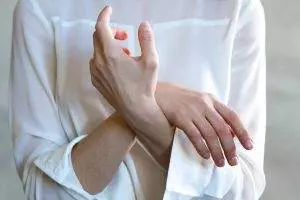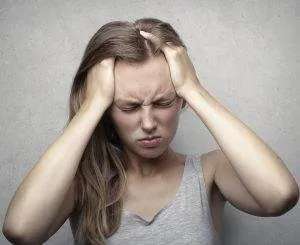-
 Art of Wellness Acupuncture & Traditional Chinese Medicine (TCM)11704 Wilshire Blvd, Suite 295, Los Angeles, CA, 90025
Art of Wellness Acupuncture & Traditional Chinese Medicine (TCM)11704 Wilshire Blvd, Suite 295, Los Angeles, CA, 90025
myartofwellness@gmail.com310-451-5522 Office Hours
MonClosedTue7:30 am --4 pmWed7:30 am --4 pmThu7:30 am -- 4 pmFri7:30 am -- 4 pmSat7:30 am -- 4 pmSunClosedOur office opens from Tuesdays to Saturdays 7:30 am to 4 pm, will be closed on Memorial day, Independent day, Labor day, Thanksgiving day, Christmas and New year.
-
Recent Posts
- Acupuncture for Sciatica Pain
- Can Acupuncture Help With Bladder Control?
- How to Treat De Quervain’s Tenosynovitis With Acupuncture and TCM
- Chinese New Year 2026: Year of the Horse
- Acupuncture and TCM Treatment for Perimenopause Symptoms
- How to Treat Insulin Resistance With Acupuncture and TCM
- How to Treat Metabolic Syndrome With Acupuncture and TCM
- How to Treat Syncope With Acupuncture and TCM
- How to Treat Thoracic Outlet Syndrome With Acupuncture and TCM
- How to Treat Dupuytren’s Contracture With Acupuncture and TCM
- How to Treat Nutcracker Syndrome With Acupuncture and TCM
- How to Treat Rosacea With Acupuncture and TCM
- How to Treat Perioral Dermatitis With Acupuncture and TCM
- Lymphatic Drainage With Acupuncture and TCM
- How to Treat Turf Toe With Acupuncture
- How to Treat Nerve Pain With Acupuncture and TCM
- Sign up to receive news and updates and get my free report:“The Top 10 Reasons to Try Acupuncture”

February 2026 M T W T F S S 1 2 3 4 5 6 7 8 9 10 11 12 13 14 15 16 17 18 19 20 21 22 23 24 25 26 27 28
Immune System
How to Treat Sinusitis With Acupuncture and TCM
By Xiaomei Cai, L.Ac., Ph.D. and Qineng Tan, L.Ac., PhD.
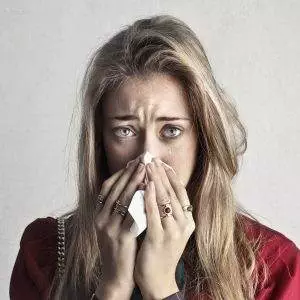
Stuffy nose, nasal congestion, sinus pressure or sinus headache? Lost your sense of smell? These could be sinusitis symptoms. Acute sinusitis is a sinus infection that can cause sinus pain, postnasal drip, and difficulty breathing. Acupuncture and TCM can help relieve sinus congestion and prevent chronic sinusitis.
The sinuses are four sets of hollow cavities inside the head (forehead, cheeks, and nose) that produce mucus and then allow it to drain through the nasal passageways. This process helps keep bacteria and allergens out of your nose.
What causes sinusitis? Sinusitis occurs when a sinus infection causes the sinuses to become inflamed and not drain properly. This usually happens because of a viral infection, like the common cold, or a bacterial infection or fungal infection. A long-term candida infection can also contribute to the development of sinusitis.
Sinusitis can seem similar to rhinitis, also known as allergic rhinitis. Rhinitis refers to swelling and inflammation inside the nose, and can also cause symptoms like nasal congestion. The difference is that rhinitis is brought on by an allergic reaction—commonly “hay fever,” or seasonal allergies—instead of an infection, and rhinitis is centered in the nasal passages, rather than the sinuses.
Factors like allergies, asthma, structural blockages, or weakened immune systems can elevate the risk of someone getting sinusitis. When the sinuses are blocked, bacteria and other pathogens can proliferate more easily.
Acute sinusitis usually clears up on its own in about 10 days, although getting acupuncture treatment and herbs can help bring relief sooner.
If sinus pain, stuffed up nose, and yellow-green mucus are still present after two weeks, it may mean that there is an infection that isn’t clearing up.
People are more at risk for developing sinusitis if they have:
- Seasonal allergies, hay fever
- Large adenoids (tonsils)
- Cystic fibrosis
- Smoke cigarettes
- Weak immune system due to HIV
- Take immunotherapy for autoimmune condition
- Unusual formation of the sinuses
- Are in an environment where they are exposed to lots of germs, such as day care
About 14% of Americans are diagnosed with chronic sinusitis every year; it’s one of the most common reasons that people will be prescribed antibiotics. However, if the sinusitis is occurring due to a viral infection, antibiotics are not really helpful.
TCM modalities of acupuncture, herbs, and moxibustion can help relieve symptoms of sinusitis and sinus pain, as well as helping to address allergies, asthma, clear up infections, improve immune function, and reduce inflammation.
Chronic Sinusitis and Nasal Polyps

It is fairly common for people with chronic sinusitis to also have nasal polyps. Nasal polyps develop when the nasal tissue becomes swollen and inflamed to such a degree that fluid-filled sacs form.
If a person also suffers from allergies, then exposure to an allergen can cause the nasal polyps to become inflamed to the point that they block the nasal passages, causing difficulty breathing. When a person can’t breathe through their nose at night, in particular, it can lead to snoring and even sleep apnea.
Chinese herbal formulations that have antibacterial and antifungal properties can help to relieve overproduction of mucus and prevent nasal polyps from coming back.
Acupuncture treatment can also help people breathe easier and sleep better, stop snoring and relieve sleep apnea.
Top 5 Sinusitis Symptoms
Sinusitis typically begins with the usual symptoms of the common cold. Then, instead of clearing up after several days, the symptoms get worse. Symptoms of sinusitis include:
- Stuffy nose: thick, yellow, or greenish mucus causes a runny nose
- Postnasal drip: when mucus drips down the throat. Postnasal drip can be particularly uncomfortable at night, when you’re trying to sleep.
- Nasal Congestion: A blocked or stuffy nose makes it hard to breathe through the nasal passages.
- Sinus headache or Facial Pain: Pain, tenderness, and pressure around the eyes, cheeks, nose, or forehead, especially intensified when bending over.
- Loss of smell: Altered sense of smell.
Other signs of sinusitis may Include:
- Ear pressure
- Toothache
- Cough
- Sore throat
- Bad breath
- Fatigue
- Fever
Sinusitis Treatment
Medical treatment to help relieve symptoms of sinusitis typically involves:
- Regularly spraying saline nasal spray (or saltwater) into the nose helps rinse the nasal passages.
- Corticosteroid nasal sprays, such as fluticasone and budesonide, prevent and treat swelling in the nasal passages.
- Over-the-counter decongestants in liquid, tablet, or nasal spray can help relieve nasal congestion. However, nasal decongestants should be used for a limited time to avoid rebound congestion.
- If sinusitis is allergy-related, allergy medicines can alleviate allergy symptoms.
- Acetaminophen, ibuprofen, or aspirin may be recommended to manage face pain and sinus headaches.
- Antibiotics: Since acute sinusitis is often viral, antibiotics, which target bacteria, may not be immediately prescribed. Providers may adopt a “wait and see” approach, reserving antibiotics for severe, worsening, or prolonged cases.
For cases of sinusitis linked to allergies, immunotherapy, commonly in the form of allergy shots, may be recommended. Immunotherapy aims to desensitize the immune system to specific allergens, potentially reducing sinusitis symptoms triggered by allergies.
Acupuncture and Chinese herbs can provide a safe alternative treatment for sinusitis, without the side effects that some of these medications can cause.
Can Acupuncture Help Sinusitis?
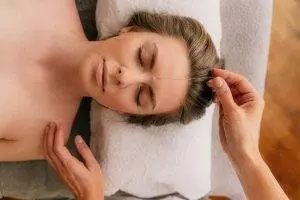
TCM has been used for centuries to treat sinus conditions. An acupuncturist will carefully observe each individual patient’s symptoms and experience to determine whether warming or cooling herbs are necessary to help relieve sinus congestion and treat the underlying cause of the problem.
According to TCM theory, sinusitis can result from external factors of wind and cold, which can weaken the lungs, preventing the lung system from doing its job of protecting the body from infections. In TCM, we say that the spleen produces phlegm, and the lungs store phlegm.
In some cases, it is necessary to nourish the Spleen Qi in order to address underlying causes of mucus buildup and improve immune system function.
Specific acupuncture points can be very helpful for relieving sinus pressure, sinus headaches, and other symptoms of sinusitis. A few examples include Shen Ting (“Spirit Court”), Yin Tang (“Hall of Impression”), Ying Xiang (“Welcome Fragrance”), and Zhanzu.
One study of patients with sinusitis treated with acupuncture showed a 60% reduction in sinus pain, and significantly improved air flow.
Another study showed that patients who had already had surgery for nasal polyps who received Chinese herbs in addition to conventional medical treatment had better quality of life, with less symptoms of nasal discharge, difficulty breathing, and bad breath.
A review of studies pertaining to TCM treatment for chronic rhinitis concluded that acupuncture is indeed an effective alternative or adjunct treatment for symptomatic improvement.
A study that offered acupuncture treatment and herbal formulations to help relieve nasal polyps found that this method helped prevent the recurrence of polyps.
Acupuncture Near Me for Sinusitis
Sinusitis, nasal polyps, and rhinitis are common conditions that cause a lot of discomfort for millions of people every year. If you or someone in your family is prone to recurrent infections that cause sinus pain and pressure, it may be time to try alternative medicine to help address the underlying causes of sinus headache and a constant stuffy nose and postnasal drip.
*This article is for education from the perspective of Traditional Chinese Medicine only. The education provided by this article is not approved by FDA to diagnose, prevent, treat and cure human diseases. It should not stop you from consulting with your physician for your medical conditions. Traditional Chinese Medicine is based on Qi, which is an invisible force that usually cannot be observed by modern science. Because science focuses on testing ideas about the natural world with evidence obtained through observation, these aspects of acupuncture can’t be studied by science. Therefore acupuncture and Chinese herbs are often not supported by double-blind, randomized trials, and they are considered alternative medicine therapies in the United States.
How To Treat Sjogren’s Disease With Acupuncture and TCM
By Qineng Tan, L.Ac., Ph.D. and Xiaomei Cai, L.Ac., Ph.D.
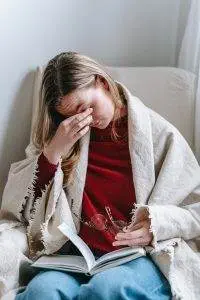
Dry mouth? Dry eyes? Joint pain that flares up and then goes away? These can be Sjogren’s disease symptoms. Sjogren’s Syndrome is an autoimmune disease that causes damage to the glands that produce saliva and tears. Acupuncture and TCM provide an alternative Sjogren’s treatment to help relieve Sjogren’s syndrome symptoms.
Sjogren’s autoimmune disease is becoming more common, with an estimated four million Americans affected.
Many people with Sjogren also have another autoimmune disorder, such as rheumatoid arthritis, scleroderma, or lupus. In these cases, it is called Secondary Sjogren’s syndrome.
Anyone can develop Sjogren’s syndrome, but it is much more prevalent among women, and in people over the age of 40.
What causes Sjogren’s disease? As with most autoimmune diseases, medical research has not discovered the exact cause of Sjogren’s syndrome. The immune system, which normally works to get rid of bacteria or other pathogens, sometimes malfunctions and begins attacking healthy cells.
In the case of Sjogren’s, the immune system mistakenly attacks cells of the salivary glands and the glands that produce tears. When these glands become inflamed and/or damaged, they no longer produce enough fluid to keep the eyes and mouth lubricated.
Acupuncture treatment can be a safe and effective way to help relieve symptoms of dry mouth (also known as xerostomia), dry eyes, fatigue, and joint pain.
Top 10 Sjogren’s Syndrome Symptoms
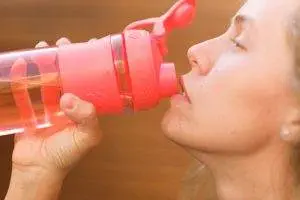
As with other autoimmune disorders, the symptoms of Sjogren’s disease can seem to come and go, or “flare up” periodically. A Sjogren’s flare is a sudden onset of symptoms that occurs when you’ve been feeling better for a while, and then something like work stress or doing too much can suddenly make you feel extreme fatigue and other symptoms.
The most common Sjogren’s Disease symptoms include:
- Dry mouth, dry throat, difficulty swallowing, “cotton mouth”
- Dry eyes, gritty eyes, burning, itchy eyes, sensitivity to light, blurred vision
- Joint pain, stiff joints, swollen joints
- Dry skin, skin rash
- Loss of taste, can’t taste, things taste different
- Dental cavities, oral thrush, oral yeast infections
- Mouth ulcers
- Dry cough, persistent cough
- Vaginal dryness
- Fatigue
Sometimes Sjogren’s can cause peripheral neuropathy, or tingling and numbness in the hands and feet. Some people may experience acid reflux, swollen glands, cognitive difficulties, like poor short term memory, shortness of breath, and trouble sleeping.
Less common but more serious complications of Sjogren’s disease can include a higher risk factor for getting pneumonia, kidney problems, and liver disease, like cirrhosis or hepatitis. In rare cases, people with Sjogren’s syndrome can develop lymphoma (cancer of the lymph nodes).
Medical treatment for Sjogren’s Syndrome is mostly about managing symptoms, so that a person can live comfortably.
Sjogren’s Treatment

Managing Sjogren’s symptoms like dry eyes and joint pain is the primary aim of medical treatment for Sjogren’s.
Dryness is the most common symptom of Sjögren’s, and one of the primary approaches to managing dry eyes and dry mouth involves moisture replacement therapies. Artificial tears and lubricating eye drops help alleviate dry eyes, while saliva substitutes and frequent sips of water can provide relief for dry mouth.
Medications that stimulate saliva production, such as pilocarpine or cevimeline, may be prescribed. These drugs can help improve saliva flow, but they can also cause side effects, like dizziness and headaches.
Nonsteroidal anti-inflammatory drugs (NSAIDs) may be recommended to manage pain and inflammation associated with Sjögren’s syndrome. In more severe cases, corticosteroids, which act as anti-inflammatories, may be prescribed. However, long-term use of steroid medications does, in many cases, cause unwanted side effects, increasing the risk of developing problems like cataracts, osteoporosis, and problems with blood sugar.
Immunosuppressive medications, such as hydroxychloroquine or methotrexate, are often prescribed for autoimmune diseases, to dampen the immune response. These drugs aim to reduce inflammation and alleviate symptoms, particularly in cases where there are complications involving organs like the kidneys or liver.
In cases where joint pain and inflammation are present, disease-modifying antirheumatic drugs (DMARDs) like methotrexate may be considered. These drugs work to modify the course of the disease and manage systemic symptoms.
Acupuncture and Chinese herbal supplements have been shown to work as an effective alternative or adjunct treatment for Sjogren’s disease.
Can Acupuncture Help Sjogren’s Syndrome?
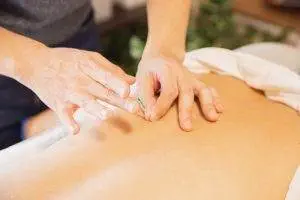
Many diseases and syndromes have a variety of possible symptoms, which show up differently in different people. In TCM, we recognize that sometimes people can have the same sort of disorder, but with different patterns of symptoms, which give us clues about what sort of internal imbalance is causing the disorder. Thus, an acupuncturist will create a unique treatment plan for each individual patient.
According to TCM theory, Sjogren’s disease symptoms can be related to Yin deficiency, and a pattern of dry heat. Acupuncture and herbs can help to nourish and strengthen Yin, and bring more moisture to the organ systems.
In other cases, though, there may be dampness, stasis, or Qi deficiency. Herbs to strengthen the liver and help relieve depressed Qi may be used, and/or herbs to tonify the spleen, to help clear dampness.
One systematic review of clinical trials found that a Chinese herbal formula was superior to Hydroxychloroquine for helping to alleviate Sjogren’s symptoms.
A study comparing patients with Sjogren’s treated with hydroxychloroquine versus those who received acupuncture treatment and herbs found that the group who received TCM treatment for Sjogren’s had an 83% effective rate, versus a 60% effective rate among the people who took the immunosuppressant medication. This study measured saliva and tear production as well as immune system function.
It has been hypothesized that acupuncture treatment has a positive effect on the parasympathetic nervous system, helping promote relaxation and move patients out of a “fight or flight” mode, which, in turn, can help to restore natural salivation and improve appetite.
Another study found that Sjogren’s patients who received acupuncture to help dry eye symptoms reported that they were able to greatly reduce their use of artificial tears after receiving a course of acupuncture, and were still feeling these benefits several months after treatment.
Acupuncture Near Me for Sjogren’s Disease in Los Angeles, West L.A.
Acupuncture and TCM offer holistic treatment for Sogren’s syndrome and other autoimmune diseases. An experienced acupuncture provider can create a personalized health care plan for each patient that addresses their unique needs and situation. Dr. Tan and Dr. Cai at Art of Wellness in West Los Angeles have over 35 years of experience helping patients get relief from symptoms like joint pain and fatigue, and improving their quality of life.
*This article is for education from the perspective of Traditional Chinese Medicine only. The education provided by this article is not approved by FDA to diagnose, prevent, treat and cure human diseases. It should not stop you from consulting with your physician for your medical conditions. Traditional Chinese Medicine is based on Qi, which is an invisible force that usually cannot be observed by modern science. Because science focuses on testing ideas about the natural world with evidence obtained through observation, these aspects of acupuncture can’t be studied by science. Therefore acupuncture and Chinese herbs are often not supported by double-blind, randomized trials, and they are considered alternative medicine therapies in the United States.
How to Treat Autoimmune Disorders With Acupuncture and TCM
By Qineng Tan, L.Ac., Ph.D. and Xiaomei Cai, L.Ac., Ph.D.

Autoimmune disorders are on the rise, and they can be difficult to diagnose and treat. Acupuncture and TCM offer relief from autoimmune disease symptoms, while addressing the root of what might cause autoimmune disorders.
What is an autoimmune disease? The human immune system creates a variety of antibodies that are designed to fight off bacteria, viral infections, cancer cells, and toxins. An autoimmune disorder occurs when your body’s immune system malfunctions in some way and creates antibodies that attack healthy cells instead of dangerous ones. Different autoimmune disorders cause damage or dysfunction in different organs or systems of the body.
A recent study, based in the UK, looked at 19 prevalent autoimmune diseases and found that autoimmune disorders affect about one in ten people (13% of women and 7% of men).
Another study published in Arthritis and Rheumatology a few years ago, found that the most common biomarker of autoimmune disease—a high number of antinuclear antibodies (ANA)—has risen significantly across the US population, and particularly among certain groups, including adolescents, and people over 50. This study suggests that the chance of developing an autoimmune disorder is higher than ever.
Medical science has named over 80 different types of autoimmune diseases, but the understanding of what causes autoimmune disorders is still murky. Many people with autoimmune disorders go undiagnosed, and even when doctors are able to diagnose an autoimmune condition, there is no cure.
Autoimmune disorders do tend to run in families, which suggests that some people are more likely genetically disposed to develop an autoimmune disease. It is also common to have more than one autoimmune disorder concurrently. Having two or more autoimmune diseases is known as polyautoimmunity.
A few of the most common combinations of autoimmune disorders are:
- Scleroderma, autoimmune thyroid disease, and/or rheumatoid arthritis (RA)
- Myasthenia gravis and dermatitis herpetiformis
- Addison’s disease and vitiligo
TCM has treated many of these autoimmune disorders for centuries, although we may categorize them differently. The TCM view is that most autoimmune diseases are rooted in imbalances and deficiencies in the organ systems.
Stagnation of blood and Qi, and problems like excess heat and dampness in the body lead to inflammation, which is at the root of so many health problems. When systemic inflammation is reduced, the immune system can regain its proper functioning.
Acupuncture treatment is able to effect changes in the way cells are developing and functioning at the ectodermal and mesodermal layers. Acupuncture can stimulate the production of healthy cells, reduce inflammation, balance hormones, induce endorphin activity, and release peptides that improve immune function.
Top 20 Most Common Autoimmune Disorders
These are the most common autoimmune diseases, not necessarily in order. Some autoimmune disorders have significantly increased in numbers in recent years, including Celiac disease, Sjogren’s syndrome, and Graves disease. Some autoimmune conditions, like Hashimoto’s and pernicious anemia, seem to have decreased in numbers. Some autoimmune conditions have seasonal variations; for example, vitiligo is more commonly diagnosed in summer.
-

Swollen, stiff joints and painful swelling in limbs can be a symptom of lupus, RA, and other autoimmune disorders. Lupus – is an autoimmune disorder that disproportionately affects women and causes systemic inflammation, fatigue, swollen joints and limbs, and often a characteristic “butterfly rash” or “malar rash” across the face. Lupus flare-ups can be caused by stress or light exposure. According to TCM, lupus is often related to a build up of too much heat in the body, so acupuncture treatment for Lupus and herbal remedies will usually focus on removing blood stasis and clearing heat from the internal organs. TCM for Crohn’s can be used as an adjunct treatment, and may help people rely less on cortisone steroids to control inflammation.
- Crohn’s disease – is an autoimmune IBD (inflammatory bowel disease) that impacts the gastrointestinal tract, causing diarrhea, stomach pain, and bloody stool. Antibodies attack the gut bacteria that are normally a healthy part of digestion, causing inflammation and damage to the intestinal lining. Acupuncture treatment for Crohn’s disease can help reduce inflammation, repair tissues, and improve the balance of gut flora. It can also positively affect the parasympathetic nervous system that controls the action of the digestive tract, reducing stomach cramps and diarrhea.
- Rheumatoid Arthritis – an autoimmune disorder that causes joint pain and swelling, because antibodies attack the synovium, the soft tissue membranes that line joints. RA can also impact the blood vessels and cardiovascular system. RA can lead to bone loss over time, and people with RA are more prone to pneumonia and heart disease. TCM theory considers Rheumatoid arthritis to fall under the category of “Bi syndromes,” in which cold, wind and damp affect the body as pathogenic forces, causing blockages of Qi. Acupuncture can help reduce joint stiffness and pain.
- Graves disease – also known as hyperthyroidism, or overactive thyroid, Graves disease causes too much thyroid hormone to be produced, causing Graves disease symptoms like: goiter, enlarged thyroid, digestion problems, weight loss, tremors, sweating, insomnia, and infertility. Many people also have Graves ophthalmopathy, which causes bulging eyes, eye pressure, and blurred vision. TCM works to address yin deficiency and liver stagnation. Studies have shown that acupuncture and herbs can help balance the thyroid hormones.
- Multiple sclerosis (MS) – occurs when antibodies attack the myelin sheaths around nerves, leading to muscle weakness, numbness in limbs, dizziness, spasms, ataxia, or problems with balance, tremors, and trigeminal neuralgia (facial nerve pain). Acupuncture has been used to help relieve many of these symptoms of MS for hundreds of years, and can help improve and maintain motor skills.
-

Abdominal pain, stomach cramps, and gastrointestinal distress can be signs of Celiac disease, Crohn’s disease, or Ulcerative colitis. Celiac disease – is an autoimmune condition in which the body perceives dietary gluten to be a threat, triggering an immune response that creates inflammation and damage to the intestinal tract. Following a gluten free diet is important, and a TCM health practitioner is trained in nutrition to help patients make the necessary changes to ensure nourishment and prevent anemia. Acupuncture and herbs can also help repair intestinal tissues and bring down inflammation.
- Myasthenia Gravis – causes antibodies to attack nervous system receptors in the muscles, especially of the face, causing the eyelids to droop and making it difficult for a person to perform some movements related to the eyes, mouth, and throat. Muscle weakness and communications between the nervous system and the muscles can be helped with acupuncture treatment, and patients may be able to regain strength and reduce steroid usage.
- Scleroderma – is an autoimmune disease in which the body is producing too much collagen. Scleroderma causes hardening and thickening of the skin, and can affect connective tissues like cartilage. In extreme cases, Scleroderma can cause scarring on internal organs. TCM diagnosis may determine that Scleroderma is happening due to blood stagnation, and Chinese herbs have been shown to help manage collagen production.
- Hashimoto’s Disease or Hashimoto thyroiditis – also known as hypothyroidism, chronic thyroiditis, or low thyroid, Hashimoto’s causes too little thyroid hormone to be produced. Hashimoto’s low thyroid symptoms include: swollen thyroid, fatigue, weight gain, brain fog, and depression. Acupuncture addresses weak kidney and liver qi, and helps to balance TSH and thyroid hormone levels.
- Pernicious Anemia – is a specific type of autoimmune anemia that occurs when the intestinal lining is not able to absorb enough Vitamin B12. Aplastic anemia is another type of autoimmune anemia, in which antibodies are attacking the bone marrow, so it cannot produce enough blood cells. Acupuncture and TCM herbs can help boost blood deficiencies that cause anemia symptoms and help to repair the lining of the intestine to improve its function.
- Addison’s disease – also known as adrenal insufficiency, or adrenal fatigue, is an autoimmune disease that attacks the adrenal cortex, so that the body does not make enough cortisol. Addison’s disease symptoms include: fatigue, dehydration, loss of appetite, salt cravings, dizziness, low blood pressure, and joint pain. TCM views Addison’s primarily as a kidney deficiency that can be treated with acupuncture, herbs, and moxibustion to support kidney function.
- Vitiligo – an autoimmune disorder that affects melanin, or skin pigmentation, causing white patches on skin, and hair turning gray or white, and can affect eye color and vision. Acupuncture treatment and herbal remedies can be used as an alternative treatment for vitiligo, or as an adjunct to conventional treatments like light therapy and steroid medications, to help with repigmentation of skin and to help treat vitiligo at its roots.
- Ehlers-Danlos syndrome – affects the way the body produces collagen, leading to a connective tissues disorder, which in some cases creates hypermobile joints, stretchy and/or thin skin, and bruising. There are many different presentations of EDS, affecting different parts of the body. Acupuncture and Tuina massage can improve muscle tone, help with healing and reduce pain.
- Psoriasis – an autoimmune skin condition that causes too many skin cells to form, creating hard, scaly patches of skin, especially on the elbows and knees. As with many other autoimmune disorders, psoriasis tends to come and go; flare-ups can be triggered by a cut on the skin, an infection, or emotional stress. TCM theory says that psoriasis occurs due to pathogenic heat and dryness in the body; treatment will focus on strengthening lung Qi and clearing blood heat and stagnation.
- Autoimmune hepatitis – which has also been called plasma cell hepatitis or lupoid hepatitis, occurs when the immune system mistakenly attacks liver cells, causing fatigue, abdominal pain, and joint pain. People who already have an autoimmune disease, including Type 1 diabetes, Celiac disease, or Graves disease, are more likely to develop autoimmune hepatitis. Acupuncture and herbs are excellent for helping to repair the liver and improve liver functioning.
- Dermatitis herpetiformis – also known as Dhuring’s disease, is a bumpy, blistered skin rash, similar in appearance to herpes sores or hives. This autoimmune skin condition is related to Celiac disease, flaring up when a person ingests gluten. Acupuncture helps to relieve inflammation and itchy skin and promote healing, while clearing heat and stagnation from the lungs, which are often connected to skin disorders.
- Ulcerative Colitis – is an IBD (inflammatory bowel disease), similar to Crohn’s disease, in which the immune system attacks the lining of the colon, causing sores and inflammation to develop, which leads to frequent diarrhea, abdominal pain, and bloating. TCM uses herbs and acupuncture to clear heat and dampness from the colon and promote healing of the intestinal tissues. Moxibustion can help relieve cramping and diarrhea.
-

Severe headaches and brain fog can be signs of autoimmune encephalitis. Autoimmune Encephalitis (AIE) – causes inflammation of brain tissues, causing severe headaches, brain fog, and neck pain and stiffness. This condition can develop in response to an infection. Anti-NMDAR encephalitis can be related to a tumor called a teteroma. TCM treats the internal heat that leads to fevers, infections, and inflammation with cooling herbs, and helps reestablish connections throughout the central nervous system.
- Type 1 Diabetes – is an autoimmune condition in which the cells of the pancreas do not function properly to produce insulin. About 5-10% of people with diabetes have this type. In TCM, diabetes is known as “Xiao Ke,” the wasting disease, and is believed to be due to too much heat and dampness accumulating in the organs. Acupuncture treatment can help improve pancreatic function and insulin production.
- Guillain-Barre syndrome – also known as “acute inflammatory demyelinating polyradiculoneuropathy” (AIDP), is an autoimmune and neurological condition in which antibodies attack the myelin sheaths that surround the nerves, causing muscular weakness, neuropathy and hypertension. A combination of acupuncture and moxibustion treatment can relieve nerve pain and help improve the strength and coordination of the muscles, while helping to encourage the growth and repair of nerves.
Other autoimmune disorders include: ankylosing spondylitis.
Can Acupuncture Help Autoimmune Disorders?
Inflammatory cytokines are part of the immune response that creates inflammation in the body as a way to get rid of invasive pathogens and promote healing when we are injured. When the immune system is not functioning properly, there is excess inflammation, and this is the root cause of many types of autoimmune disease.
Acupuncture treatment has been proven to have a positive biological effect on the production of these cytokines, and may also prevent immune system white blood cells called macrophages from turning into pro-inflammatory cells.
Other TCM modalities, like cupping, activate the immune system and help manage nitric oxide levels. Nitric oxide levels play a role in T-cell regulation, which affects inflammation of joints in patients with systemic lupus and rheumatoid arthritis.
TCM treatment is a holistic way of treating autoimmune diseases that takes the whole person into consideration, treating physical symptoms of pain and stiffness, skin rashes, gastrointestinal distress, and more, while also helping to alleviate emotional and mental health problems like anxiety and depression. Acupuncture can also help improve cognitive function, memory problems, difficulty concentrating, and brain fog.
Acupuncture Near Me for Autoimmune Disorders in Los Angeles and Santa Monica
Autoimmune disorders require highly individualized treatment. If you or someone you know has an autoimmune disease, adding a highly experienced acupuncture practitioner to your healthcare team can make a big difference in your quality of life.
Drs. Cai and Tan and Art of Wellness in West Los Angeles have over 35 years of experience helping treat autoimmune disorders of all kinds. They can bring a new perspective to your healthcare plan and help you find relief from many autoimmune disorder symptoms.
*This article is for education from the perspective of Traditional Chinese Medicine only. The education provided by this article is not approved by FDA to diagnose, prevent, treat and cure human diseases. It should not stop you from consulting with your physician for your medical conditions. Traditional Chinese Medicine is based on Qi, which is an invisible force that usually cannot be observed by modern science. Because science focuses on testing ideas about the natural world with evidence obtained through observation, these aspects of acupuncture can’t be studied by science. Therefore acupuncture and Chinese herbs are often not supported by double-blind, randomized trials, and they are considered alternative medicine therapies in the United States.
How To Treat Addison’s Disease With Acupuncture and TCM
By Qineng Tan, L.Ac,. Ph.D. and Xiaomei Cai, L.Ac., Ph.D.

Always tired? Craving salty foods? Thirsty all the time? Adrenal fatigue? Addison’s disease is a condition in which the adrenal glands do not produce enough cortisol. Acupuncture and TCM can help to balance the adrenal hormones and relieve adrenal insufficiency symptoms.
Addison’s, also known as adrenal insufficiency, happens because of damage to the adrenal glands. What do the adrenal glands do? The adrenals are small glands that are located just above the kidneys. They produce hormones, including cortisol and aldosterone. These hormones are important in metabolic functions, and are also a big part of our stress response.
Cortisol is released from the adrenal glands into the bloodstream, and it aids in the body’s use of macronutrients: protein, carbohydrates, and fats. Cortisol regulates blood pressure and blood sugar levels, and it also gives us an extra energy boost when we need it because of sudden and/or stressful circumstances.
In many cases, Addison’s disease is the result of an autoimmune disorder. In these cases, the immune system mistakenly attacks the adrenal cortex, the part of the adrenal glands that produce cortisol and aldosterone.
In some parts of the world, tuberculosis infection is still common, and tuberculosis can lead to damage of the adrenal glands.
Other infectious diseases like HIV/AIDS, or fungal infections like histoplasmosis, can cause adrenal damage.
People with other autoimmune diseases may be more susceptible to developing Addison disorder, too. For example, Addison’s disease can happen concurrently with:
- Dermatitis herpetiformis
- Graves disease
- Type 1 diabetes
- Pernicious anemia
- Hashimoto’s disease, thyroiditis
- Vitiligo
- Myasthenia gravis
Some people may develop Addison’s disease in addition to having hypothyroidism or diabetes.
Addison’s Disease Symptoms
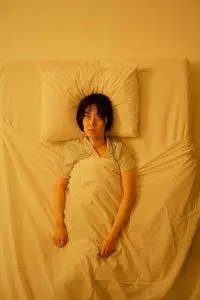
In the early stages, Addison’s disease symptoms may feel like a flu, causing fatigue, muscle weakness and joint pain. But as the illness progresses, these symptoms may become chronic.
Adrenal insufficiency symptoms include:
- Extreme fatigue
- Dehydration
- Loss of appetite
- Unexplained weight loss
- Darkening of skin in areas, hyperpigmentation, darkening of gums
- Blue-black color to skin around mouth, nipples, or genitals
- Low blood pressure, hypoglycemia
- Dizziness
- Fainting, light-headedness
- Craving salt
- Abdominal pain
- Nausea, vomiting
- Diarrhea
- Joint pain
- Muscle pain
- Depression
- Irritability
- Loss of body hair
- Sexual problems
- Irregular periods, no menstrual periods, missed periods
Primary ovarian insufficiency (POI), has been found to be more common among those with Addison’s disease, with about 1 in 10 women with Addison’s going through early menopause (before 40).
In extreme situations, Addison’s sickness can lead to kidney failure, or going into shock. Early warning signs of adrenal crisis include nausea, fever, headache, and confusion. This sudden worsening of Addison’s disease is known as Adrenal crisis, and requires immediate medical attention.
Medical Treatment for Addison’s Disease
Accurate diagnosis and appropriate treatment are crucial for individuals with Addison’s disease.
A doctor will typically diagnose Addison’s disease through blood tests. These tests measure the levels of cortisol and aldosterone in the blood. Low levels of these hormones are indicative of adrenal insufficiency.
If blood tests suggest adrenal insufficiency, an ACTH stimulation test may be performed. In this test, synthetic adrenocorticotropic hormone (ACTH) is administered, and cortisol levels in the blood are measured. Patients with Addison’s disease typically do not show a significant increase in cortisol after receiving ACTH.
The primary treatment for Addison’s disease involves hormone replacement therapy. Patients are prescribed synthetic cortisol (usually hydrocortisone or prednisone) to replace the insufficient natural cortisol production.
If aldosterone production is also insufficient, patients may be prescribed fludrocortisone to replace this hormone. This helps regulate salt and water balance in the body.
Dosage and frequency of cortisol replacement are adjusted to meet the specific needs of each patient. Patients often need to take multiple doses of medication daily to mimic the body’s natural cortisol rhythms.
These steroid medications can cause side effects like dizziness, nausea, and changes in the menstrual cycle.
Patients with Addison’s disease require ongoing medical supervision to monitor hormone levels, adjust medication as needed, and ensure that they are responding well to treatment.
Acupuncture offers an adjunct or alternative treatment for Addison’s disease that can help regulate hormones.
Can Acupuncture Help Addison’s Disease?
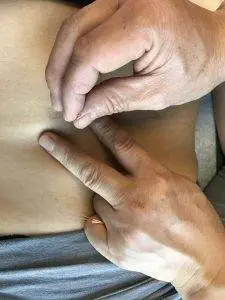
According to TCM theory, the kidneys are responsible for storing and controlling not only Qi, but “essence,” which represents a person’s foundational life force energy.
Addison’s disease, or adrenal insufficiency, is usually related to some variation of kidney deficiency according to TCM diagnosis.
Possible TCM diagnosis for Addison’s might be:
- kidney qi deficiency
- kidney yang deficiency
- kidney yin deficiency
- liver yin deficiency
- spleen blood deficiency
- spleen yang deficiency
By listening to a person’s range of symptoms, an acupuncturist will determine which pattern is emerging, and choose acupuncture points to bring energy and strength to the affected organs.
Moxibustion treatment is also an excellent modality to help build up Kidney Qi and blood.
Chinese herbs can help nourish and support kidney Qi.
For some people, acupuncture treatment and herbal supplements can be a good alternative treatment for Addison’s disease. For others, TCM treatment for adrenal insufficiency can be used as an adjunct to conventional treatment, and help to alleviate side effects of steroids, like dizziness, nausea, or menstrual changes.
Acupuncture Near Me for Addison’s Disease in West Los Angeles
Acupuncture can help address autoimmune diseases that are difficult for conventional medicine to treat. TCM modalities, including moxibustion and herbs, can provide a holistic treatment that works on the root level, restoring proper function of the immune system, as well as helping to relieve all kinds of symptoms.
Addison’s disease requires an individualized approach. Dr. Tan and Dr. Cai at Art of Wellness Acupuncture have over three decades of experience helping patients overcome all types of autoimmune disorders. Art of Wellness was recently named one of the top acupuncture practices in Los Angeles. Please do not hesitate to call us.
*This article is for education from the perspective of Traditional Chinese Medicine only. The education provided by this article is not approved by FDA to diagnose, prevent, treat and cure human diseases. It should not stop you from consulting with your physician for your medical conditions. Traditional Chinese Medicine is based on Qi, which is an invisible force that usually cannot be observed by modern science. Because science focuses on testing ideas about the natural world with evidence obtained through observation, these aspects of acupuncture can’t be studied by science. Therefore acupuncture and Chinese herbs are often not supported by double-blind, randomized trials, and they are considered alternative medicine therapies in the United States.
How to Treat Scleroderma With Acupuncture and TCM
By Xiaomei Cai, L.Ac., Ph.D. and Qineng Tan, L.Ac., Ph.D.

Hard, thickening, tight skin? Itchy, dry skin that is shiny? Changing skin color? These could be symptoms of scleroderma, an autoimmune disorder that causes your body to produce too much collagen. Acupuncture and TCM treatment can help relieve inflammation and pain while helping to resolve the underlying cause of scleroderma.
Scleroderma can be considered a type of dermatosis (skin lesion), and also a type of connective tissue disease (negatively impacting tissues that connect structures in the body), as it usually affects skin and cartilage, often starting in the extremities, and then extending up the limbs towards the trunk.
Collagen is a form of fibrous protein that the body produces to maintain the structure of skin cells, muscles, bones, and connective tissue. The immune system triggers collagen production when we are injured, but in the case of scleroderma, the body is overproducing and accumulating too much collagen.
Localized scleroderma affects primarily the skin tissue, but can also spread to subcutaneous tissues, like fascia and muscles.
In some cases, scleroderma can also impact internal organs, like the esophagus, lungs, heart, and kidneys. This is known as systemic scleroderma.
Top 3 Types of Scleroderma
Localized scleroderma can be differentiated into 3 types:
- Localized scleroderma – a few patches of discolored skin (circumscribed morphea); these skin lesions can vary in size, may be oval shaped, and are usually yellow in the center with a red border.
- Generalized scleroderma – also called generalized morphea, with this type there are more patches of thick, hard skin on various parts of the body, which may overlap.
- Linear scleroderma – more common in children, may show up as one band of affected skin on a limb or on the trunk, with a few patches of morphea. Linear scleroderma on arms and legs may affect the growth and development of that limb, as scleroderma may impact the muscle and bone tissues as well as the skin.
Systemic scleroderma is rare, but happens more commonly in women between the ages of 30 and 50. This type of scleroderma can manifest in different ways.
Systemic scleroderma can sometimes first show up as Raynaud’s phenomenon, or Raynaud’s syndrome, in which the blood vessels in the hands and feet close up when the weather is cold and cause color changes to the skin, as well as sensations of numbness, prickling, tingling, or pain. Stress can also trigger Raynaud’s.
Systemic scleroderma can cause scarring on the skin and internal organs, which can lead to gastrointestinal problems like acid reflux, cardiovascular and pulmonary problems, or renal disease.
Acupuncture treatment can be used as an adjunct treatment to help relieve symptoms of pain related to skin hardening, as well as helping to alleviate heartburn and GERD type symptoms in patients with esophageal symptoms of scleroderma. TCM can also help address the root causes of scleroderma and other autoimmune disorders.
What Causes Scleroderma?

As with most autoimmune disorders, medical science has not yet discovered exactly why some people develop this condition. While it is not passed from parent to child the way genetic diseases are, you are more likely to have scleroderma if someone else in your immediate family has it, too.
It is believed that factors like environmental toxins and/or viral infections can trigger scleroderma symptoms to flare up. The overproduction of collagen is due to abnormal functioning of the immune system.
Because women develop scleroderma more often than men do, it may be that there is a hormonal factor that affects the disease, as well.
Diagnosis and Medical Treatment for Scleroderma
There is no cure for scleroderma, so conventional medical treatments aim to alleviate symptoms and slow down the progression of the disease. The treatment plan may vary depending on the specific manifestations and severity of the disease.
To diagnose scleroderma, doctors rely on a combination of clinical assessments, medical history review, physical examinations, and lab tests. A doctor will first observe skin changes, such as thickening and hardening, then look for internal organ involvement and other symptoms.
Blood tests can help identify specific antibodies associated with scleroderma, such as antinuclear antibodies (ANA), anti-centromere antibodies (ACA), and anti-Scl-70 (anti-topoisomerase I) antibodies. Additionally, blood tests can assess organ function, including kidney and liver function, as well as inflammatory markers.
X-rays, ultrasound, or CT scans may be used to evaluate internal organ involvement, such as lung fibrosis, gastrointestinal complications, and cardiac abnormalities.
A skin biopsy sample may be taken to confirm the presence of fibrosis and assess the degree of inflammation.

Medications that may be recommended for treating scleroderma symptoms include:
- Immunosuppressants: Medications such as methotrexate, mycophenolate mofetil, and azathioprine may be prescribed to suppress the immune response and reduce inflammation.
- Corticosteroids: Oral or topical corticosteroids can help manage inflammation and alleviate symptoms in certain cases. However, long-term use may have potential side effects and is usually minimized.
- Vasodilators: Medications like calcium channel blockers and prostacyclin analogs may be prescribed to improve blood flow and manage Raynaud’s phenomenon.
- Proton pump inhibitors (PPIs): These medications can help manage gastroesophageal reflux disease (GERD) symptoms, which are common in scleroderma patients.
Patients are often advised to make lifestyle changes to manage their condition effectively. These may include:using skin moisturizers and avoiding excessive sun exposure, and using sunscreen with a high SPF, avoiding cold temperatures and stress to prevent triggering Raynaud’s, quitting smoking, and eating an anti-inflammatory diet.
Can Acupuncture Help Scleroderma?
TCM treatment for scleroderma focuses more on addressing the underlying causes of the condition, rather than simply trying to relieve symptoms. An acupuncturist will look closely at the whole person, listen carefully to hear all the symptoms they are experiencing, even those which may seem unrelated, feel their pulse and make other observations, and then ascertain which diagnostic pattern may apply.
According to TCM theory, scleroderma symptoms may occur due to:
- Blood stagnation
- Yang deficiency
- Kidney Qi deficiency or yang deficiency
- Liver and Gallbladder damp heat
- Liver blood deficiency
- Liver win
- Spleen yang deficiency
- Stagnation of cold, wind, and/or damp
Depending on the diagnosis, the TCM practitioner will then plan a treatment protocol to address the root cause, using acupuncture and herbs. For example, herbs can help move stagnant blood, relieving the skin conditions related to scleroderma. Herbs can even help to inhibit collagen production, to help reduce skin hardening.
Acupuncture has been shown to help reduce the number of Raynaud’s attacks.
Moxibustion treatment may also be used to help relieve symptoms related to Raynaud’s phenomenon.
The use of acupuncture for stress relief is also integral to treatment for scleroderma, as stress can trigger a worsening of symptoms.
Acupuncture can help reduce esophageal reflux in cases where esophageal strictures have developed due to scleroderma in the digestive tract and help improve kidney function when kidneys have been impacted by fibrosis.
TCM herbal formulations for scleroderma will be individualized for each patient’s needs. Herbs may be used to help warm and nourish the organs, while clearing dampness and activating stagnant blood and Qi.
Acupuncture Near Me for Scleroderma in Los Angeles
Acupuncture and TCM herbal medicine can be excellent modalities for helping with difficult to treat skin conditions, connective tissue disorders, and autoimmune disorders, including:
- Dermatitis
- Eczema
- Psoriasis
- Vitiligo
- Rheumatoid Arthritis
- Lupus
- Herpes simplex
- Hives, urticaria
- Ehlers-Danlos syndrome (EDS)
If you are experiencing painful skin problems or digestive problems, consider seeking out alternative care in addition to conventional treatments.
*This article is for education from the perspective of Traditional Chinese Medicine only. The education provided by this article is not approved by FDA to diagnose, prevent, treat and cure human diseases. It should not stop you from consulting with your physician for your medical conditions. Traditional Chinese Medicine is based on Qi, which is an invisible force that usually cannot be observed by modern science. Because science focuses on testing ideas about the natural world with evidence obtained through observation, these aspects of acupuncture can’t be studied by science. Therefore acupuncture and Chinese herbs are often not supported by double-blind, randomized trials, and they are considered alternative medicine therapies in the United States.
